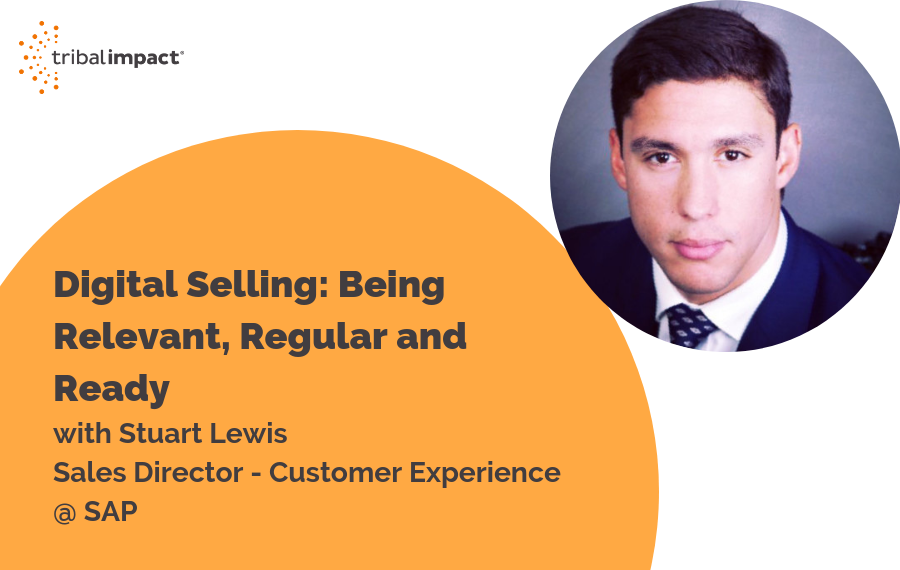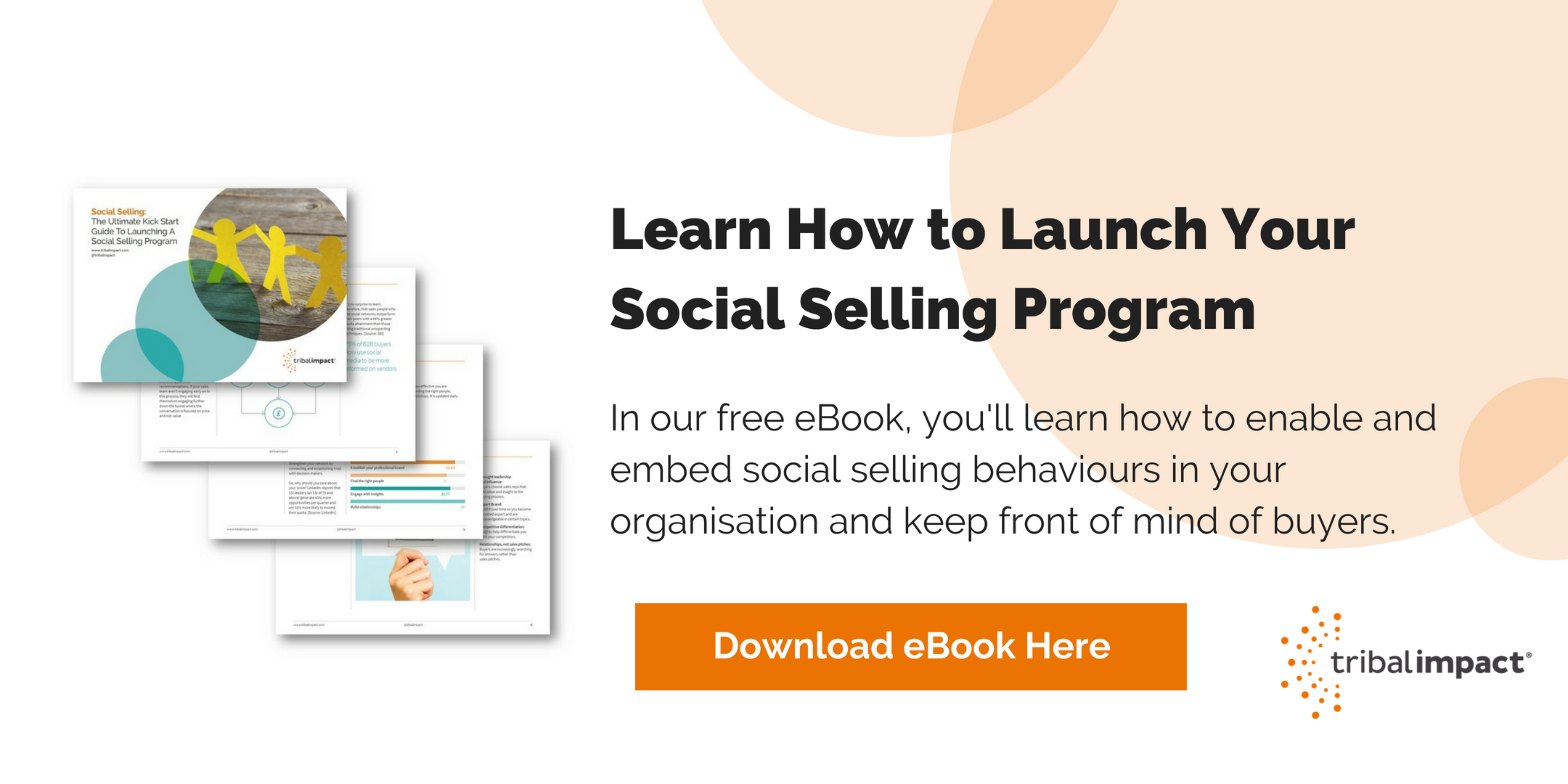Stuart Lewis is a Sales Director in SAP’s Customer Experience sector. He’s worked for the organisation in various roles for just under 4 years. An avid learner, Stuart is continually growing his knowledge and believes that, to be socially successful, you need to be relevant and regular.
Learning is Key
“For me, having a growth mindset is critical because our world is changing very rapidly. Learning is an integral part of my life, from my morning routine - listening to the business news on Bloomberg and catching up with my social media channels – to attending regular training courses to improve my knowledge and keeping up with my longer-term studies at the University of Cambridge. I have a curious mind and am always keen to learn more.”
Taking such an interest in learning also improves the quality of Stuart’s social media content, something he feels is essential in being seen as a thought leader.
Stuart explains, “I think you need to ensure the content you post on social media is credible and engaging. By continually learning, I can share my knowledge or snippets I’ve picked up with my audience. Also, I choose my annual training courses to give me a new angle on a topic I’m familiar with. For example, this year’s course was all about how to lead a digital transformation. I wanted a customer perspective on this, which the course gave me. If you want to be a thought leader and build meaningful relationships, you need to understand a concept or a challenge from your customer’s point of view.”
Having worked in sales roles throughout his career, Stuart has seen his ‘toolkit’ evolve considerably over the years. Most recently, of course, LinkedIn has come to the forefront as a platform for engaging with the buyer.
The Digital Selling Mindset
“I have two points of view when it comes to social” says Stuart. “Firstly, from a personal point of view, I find it such a rich seam of content and therefore the best way to research customers and partners. I don’t really know how we sold without it, years ago.”
Stuart’s current role at SAP is focused on Customer Experience. He explains, “CX is a really exciting space for SAP. We’re developing into ‘front office’ software, a huge growth market area for us, and social is a very important part of this. And that brings me to my second point: social is an excellent opportunity to share and view information within your team or community. You come across people who are social champions and, when these are my team members, I always look to amplify their content by liking and sharing. It’s a great way to further engage them.”
However, Stuart is clear that there has to be an appetite for getting involved; “If they don’t have the mindset or see the value of social engagement, it’s a hard thing to teach” he says.
For Stuart, LinkedIn is a key tool but he doesn’t just use it for sales activity. “I share a lot from my community and get a lot of engagement from that. I think, over time, there has been an evolution to LinkedIn and what it means to my role. When I was first active, it was mainly to gather connections and follow up after introductory meetings. Then, when I had a Business Value Practitioner role at Logicalis, I’d use it to post thought pieces and create relevant content. Now, at SAP, with such a strong global brand, I use it predominantly for research and networking.”
Communicating with the Customer
Both experience and his current role have taught Stuart that social media is a highly flexible and far-reaching tool. But his learning ethos has also added to an understanding of why it is so important to have a platform which engages.
“When I started out as an Account Executive, I used to think of my territory as a business with me as the CEO” explains Stuart. “It was my job to get the message out, clearly and consistently in order to manage all my stakeholders and accounts successfully. To do that, you need a means to broadcast.
At the same time, I was reading a lot of business leadership books and I noticed that lots of highly successful leaders had something in common: they had typically always bought a newspaper or some kind of media outlet. Whether it was Richard Branson, who started out with a student magazine; Warren Buffet who bought the Wall Street Journal and the New York Times; or Jeff Bezos, who’s business portfolio includes a venture capital arm, which owns the Washington Post. All these leaders had the direct ability to communicate directly with their customer. This was an essential tool in controlling their business reputations and brand awareness.”
Stuart put this learning into action and leverages SAPs Digitalist magazine articles. “It helps SAP to be recognised as a thought leader. It presents SAP capabilities from a customer first perspective addressing topical business issues, deliberately include content that isn’t overly tech focused. Instead, we talk about case studies and outcomes with thought pieces. I really believe this is the best kind of content for our customers to engage with.”
Building Up Your Social Media
In terms of Stuart’s approach towards social media, he believes people need to build their content sharing and networks in an authentic way, especially when switching roles. When switching to a new position it often involves a steep learning curve, and a whole new audience to be mindful of.
“I think that it’s important to be relevant and regular when it comes to posting. However, if a person changes role and is focused on immersing themselves in it, they can’t also give too much of their time to social media”.
He goes on to explain “You need to be credible to post. So, as you build up your competency, build up your profile. Start sharing slowly, and as time goes on, share more as you get to know your new role. That’s why my top tips are: stay relevant and be regular.”

